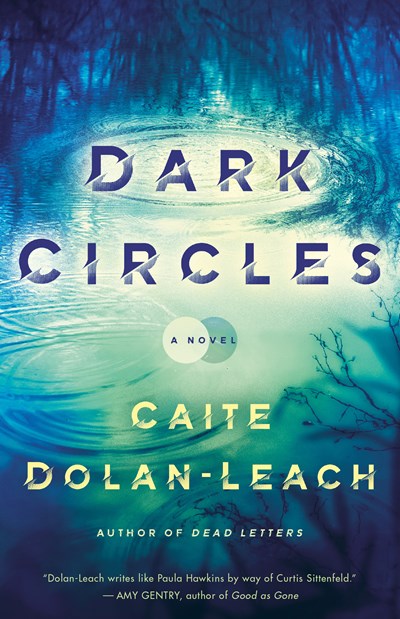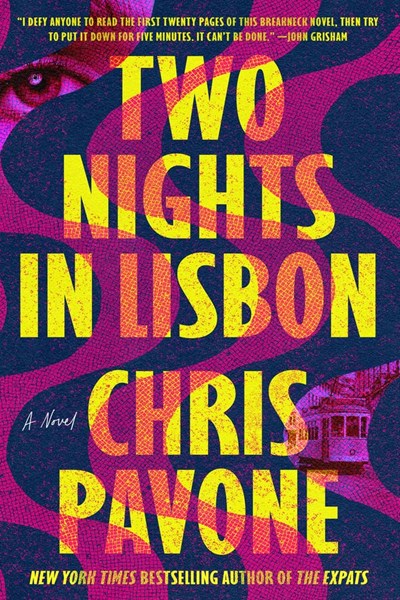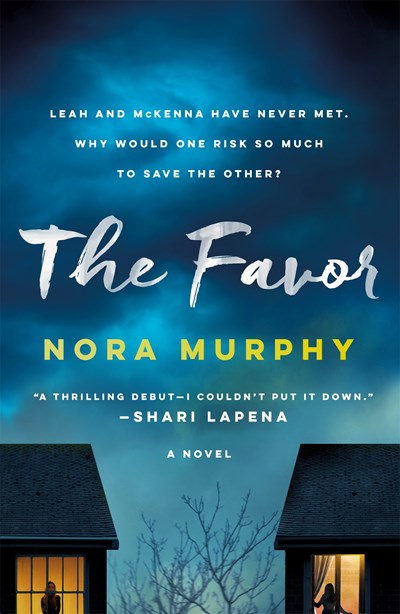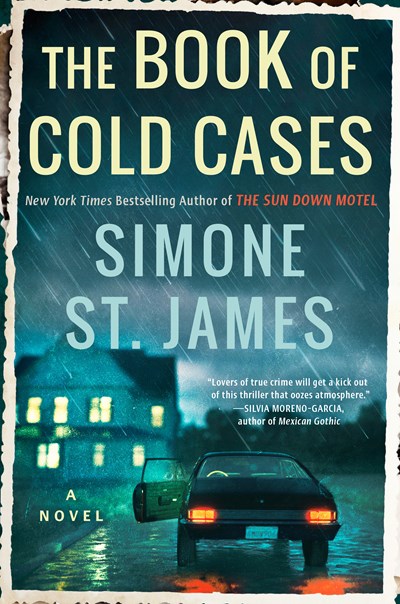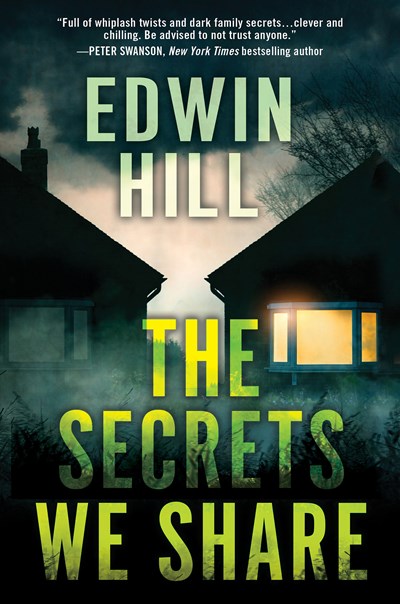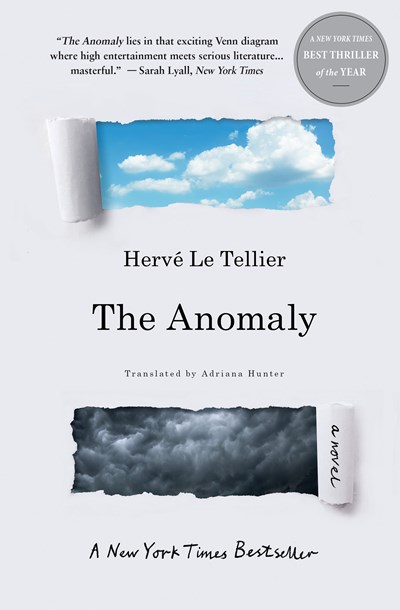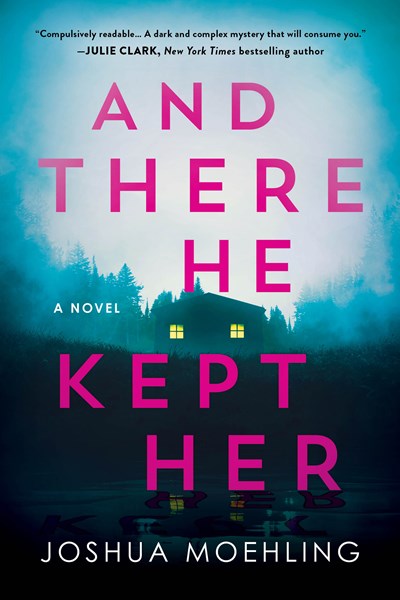A foray into the wacky world of wellness led by my favorite character of the year, Olivia (Liv) Reed. Thirty-something Liv, an actor starring in a long-running TV series, is a bit down on her luck. The paparazzi caught her making out with a man who is not her boyfriend, and photos of her ensuing meltdown on the streets of Manhattan were published everywhere. Liv’s also a bit too hands-on with the booze and pills, and her relationship with her one friend, also her publicist/handler, is on the ropes. Begrudgingly, she agrees to check in to the House of Light—don’t call it rehab!—in upstate New York, which bills itself as a spiritual center. But before you can say namaste, the body of a young woman turns up in the adjoining lake—she had ties to House of Light—and when Liv learns she’s just the latest in a series of what are being called suicides, she’s off and running. Smartly, Liv uses her celebrityhood to start a podcast that becomes wildly successful and allows her to present the investigation in nearly real time. Comparisons to Nine Perfect Strangers, the Liane Moriarty book/Hulu series starring Nicole Kidman, are inevitable—and should be helpful in promoting this book—but Dark Circles is even better. After all, it’s got the sarcastic, sophisticated, completely credible, and even sometimes vulnerable voice of Liv Reed.
Star
One of the best books I’ve read this year and a brilliant example of how sophisticated and meaningful a thriller can be while still ratcheting up the suspense and anxiety. Imagine you are accompanying your partner on a business trip to Lisbon. After a night of great food and even better sex, you wake up to find that they are gone—no note, laptop and belongings left behind, phone calls going straight to voicemail. What would you do? For Ariel Price, it’s time to mobilize. She starts by quizzing the hotel employees, eventually goading the staff in the American Embassy to help her search for John, her newish husband. But it turns out that to save John, Ariel needs to go far into her past. This novel delves deeply into sexual violence and its life-long ramifications—a rape is graphically described—while continuously upending what the reader believes to be the truth. Hold on to your hat, your head will be spinning. Librarians: purchase multiple copies.
The number of all-caps texts I sent about THE TWISTS IN THIS BOOK!!! were…many. Those twists concern the misdeeds of identical twin sisters Elli and Sam Logan, who are estranged because of a shocking betrayal. They’re former child TV stars, with Sam back then enthralled by their minor fame while Elli hated every moment. As adults, Elli is a mom while Sam sees reproduction as “a monetizable bodily function.” While Ellie explores empowerment in a self-help group, Sam is a barely sober alcoholic and drug addict whose possessions consist “primarily of emotional baggage.” The twins’ paths have diverged, but when their dysfunctional parents call Sam for help looking after a child–one she didn’t know her sister had–she drops everything. The first part of the book looks at the past and present from Sam’s perspective, and the second at the same events from the point of view of her sister. This reveals that identical events can be experienced through a gulf of misunderstanding, hurt, and fear and that damage and love will find ways out. Brown’s insightful language and the emotional brutality and fortitude shown as Elli and Sam are forced to see themselves and each other anew will stay with readers. If twins in fiction are of interest, also try Brit Bennett’s The Vanishing Half.
This is one of the best-plotted thrillers I’ve read in ages; it’s also a great portrayal of why women experiencing domestic violence are stuck. We meet Leah Dawson during her carefully choreographed routine of visiting a different liquor store every day. She hides the booze from her violent husband, Liam, a lawyer who has coercive control down to an artform. Leah’s legal career came to an end recently because her husband didn’t like her reading a work email at dinner, and took action. At the liquor store, something compels Leah to follow a fellow shopper, pediatrician McKenna Hawkins. Soon Leah’s routinely watching the woman, who’s also needlessly unemployed, from the street outside McKenna’s clinically clean home. The reason Leah felt drawn to McKenna is quickly apparent: McKenna is just like Leah, or rather McKenna’s husband, Zach, is just like Leah’s Liam. Both have ego to spare, enjoy speaking slowly to their wives to make them feel stupid, and are financially abusive. These guys have it all, until they don’t. No spoilers here, but get this book for the very original storyline, true-to-life characters, and a searing look at the pain and mind games endured behind too many closed doors. For more on why “she can leave any time” is ridiculous and insulting, read the afterword by Murphy, an attorney who’s represented survivors of intimate partner violence.
A medical receptionist by day, Shea Collins operates a popular true-crime website that specializes in cold cases. Single, a loner, and herself a victim—she was abducted as a child—Shea reserves her passions for her blog. Until the day that Beth Greer comes to Shea’s office. Back in 1977, Greer was tried and acquitted in the Lady Killer Murders, in which two men were killed, seemingly for the fun of it, by a female serial killer. Since then, the beautiful, sophisticated, and super-rich Beth has spoken to nearly no one—making it all the more remarkable that she agrees to be interviewed by Shea. Beth slowly opens up to the interviewer—inviting her into her super creepy mansion and deeply introspective life—as Shea struggles to put together the fragments Beth shares. This novel is beautifully written and perfectly paced. It creates a powerful sense of place in its depiction of an Oregon coastal community, and doesn’t shy away from tackling larger social issues, such as the sexism Beth experienced throughout her trial. Finally, its use of the paranormal—something I typically shy away from—is as terrifying as it is credible
A bold, ambitious novel with a big, multigenerational story line, a busload of characters, and a smart balance between mystery and suspense. Natalie Cavanaugh and Glenn Abbott are sisters, but not the least alike. Natalie is a tough-as-nails Boston cop, while Glenn is a food blogger and now a book author. What they have in common is what they never talk about: the murder of their father, who was bludgeoned to death in the woods behind their house. But through a series of incidents in Glenn’s life today, the women are drawn back into their shared past, and the story line opens up to include Glenn’s husband, her tween daughter, Natalie’s colleagues on the police force, and many more. It’s remarkable that Hill can keep so many subplots afloat while at the same time creating such a level of suspense that the reader feels as though they are being catapulted to the knock-out conclusion. Hill is the author of the more cozy-ish Hester Thursby series, and librarian Hester makes a few delightful cameos in this book. For fans of Robert Bryndza and Karin Slaughter.
Get ready to care far more than you thought you could about fictional strangers. The three in question are Jade, the busy, pampered wife of Atlanta celebrity chef Cam Lasky; and her children, Beatrix and Baxter. This book wastes no time on background, and we get to know these characters as they enter a domestic horror scene. Arriving home from violin-prodigy Beatrix’s music lesson, they are met in the garage by a masked gunman who takes them hostage for a day of psychological terror. He wants $734,296, an odd demand that Jade gives her flashy husband when she can get a word in over the phone, starting him on a desperate quest. The overextended, secretly broke businessman, who’s not the most sympathetic character, is brought to his knees while his family’s love and strength are pushed to the limit. Each character is meticulously drawn, and presented from multiple angles, as the story plays out from the alternating viewpoints of Jade, Cam, and for a short time, the kidnapper. In a clever device, much of Cam’s narrative involves him answering questions in a post-event sensationalist TV interview, which allows Belle (Dear Wife, The Marriage Lie) to parcel out information bit by tantalizing bit. Read something mellow after this, you’ll need it.
As well as offering a peculiar and captivating story, this winner of France’s Prix Goncourt prize, for the “”best and most imaginative prose work of the year,” stands out as wonderfully French. Le Tellier describes his characters in gutting detail while maintaining a distant nonchalance, inviting readers to share in his weariness at how emotionally finished these people are. Among them is Victor Meisel, who resembles “a healthy Kafka who made it past forty” and is writing a book called The Anomaly; André, an architect who’s desperate to hold onto the love of his much-younger girlfriend, and Lucie, that girlfriend, who’s drifting away; David, who’s facing a deadly illness; and Slimboy, a famous singer who spends all his energy maintaining the facade that he’s straight. Their shredded emotions are on display in the lead up to a Paris-New York trip, with each then depicted as one of a handful of strangers on, and the pilot of, a flight that experiences near-lethal turbulence with a bizarre aftermath. Emotions are just one of the problems faced by the survivors, who find themselves captive in a situation that involves not only the CIA and FBI but even the President of the United States (“a fat grouper with a blond wig”). Viewers of Netflix’s hit series Manifest will recognize some elements of this story, but the book and the show are unrelated and the aftermath of the flight is different enough to enthrall fans of the show and to keep them reading to the end.
Here’s the premise: two teens, a boy and a girl, break into Emmett Burr’s house in search of opiates. The house is remote, set on Sandy Lake in northern Minnesota, and the kids just assume that Emmett, old and immensely obese, will be passed out. But everything that can go wrong, does go wrong. Emmett shoots and kills the boy, while the girl, Jenny, is chained and left in a cell in the basement. It’s clear that she’s just the latest in a series of girls who’ve been locked up, abused, and eventually murdered. Fortunately, Jenny’s mother is quick to notice that her daughter is missing; she calls Sheriff’s Deputy Ben Packard, and the search is on. Ben, who recently moved from Minneapolis, spent his childhood summers on the lake; in fact, he’s related to Jenny. Packard’s search takes him to the dark underbelly of Sandy Lake, where alcoholism and drug abuse and violence and crime rule. Low-key Packard, who has his own secrets—he’s gay and just inching out of the closet—is as compelling and potentially as complex a cop as Louise Penny’s Armand Gamache. This is a remarkable debut—sharp, suspenseful, and emotionally powerful—sure to appeal to readers of Karin Slaughter and Lisa Gardner.
“Life owns a way of disappointing most,” notes a character in Lloyd’s meticulously written and researched debut, in which murder is hot on the heels of the disappointments. One of the killings is the goriest I’ve ever read: brace yourself for a man having his Adam’s apple bitten out, with the gruesome fruit spat out to roll across the floor. And that’s only a minor character, one of those enmeshed in the politics swirling through London’s grimy, cold winter of 1678, when paranoia about Catholic plots to kill the King and turn the populace toward popery abounds. A light in the gloom is real-life polymath Robert Hooke, who leaves his elaboratory experiments to investigate the murder of the book’s titular boy. The child is found with his blood entirely removed, dates written beside various wounds on his body, and a coded message left on his chest. Once Hooke’s newly invented means of creating a vacuum in a jar is employed to preserve the body, the sleuthing is afoot. London of the day is almost its own character here, with Lloyd shoving readers into the chill, stink, and fear for a wonderfully atmospheric time. Try this if you enjoyed Cathedral of the Sea by Ildefonso Falcones, which illuminates the same era, but in Barcelona

